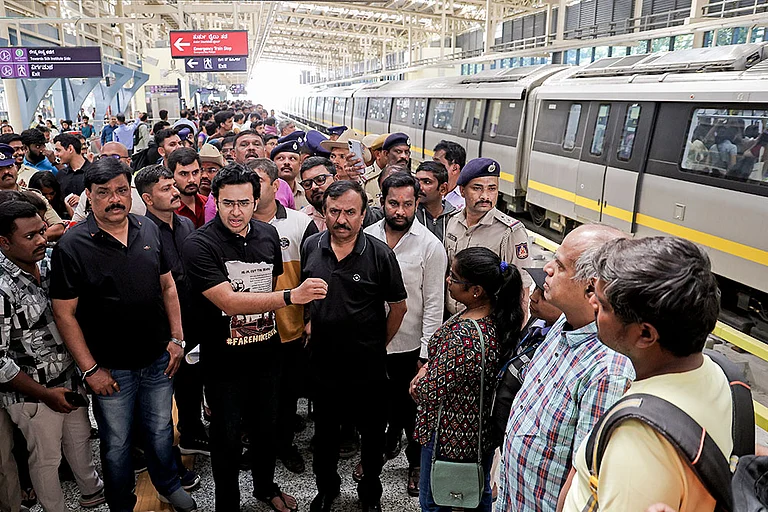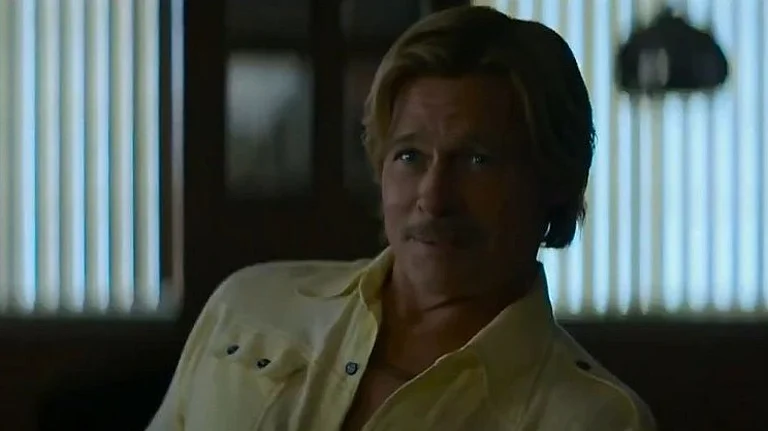PRESIDENT Bill Clinton must be a happy man indeed. Whitewater et al notwithstanding, the latest CNN/USA Today Gallup poll has it that if presidential elections were held today, he would easily win. But then, as George Bush learnt in 1992, polls so early in the race can be extremely deceptive.
At the moment, the Republican field is wide open, with three main candidates vying for a nomination. TV commentator Pat Buchanan, who blindsided Senate Majority Leader Bob Dole with a major win in New Hampshire, remains a force to reckon with as the GOP (Grand Old Party) is still divided. Dole, the presumptive forerunner in his third attempt on the White House—who barely scraped past Buchanan in Iowa—has won North and South Dakota but is clearly wounded. And with surprise triumphs in Arizona and Delaware, millionaire publisher Steve Forbes' outsider campaign is reaping rich dividends.
And then there are the possible dark horses. Former Tennessee governor Lamar Alexander has slipped from his third place status and needs to do a lot better to raise funds. Another GOP hopeful, Senator Richard Lugar of Indiana, is hoping that the large number of Republican candidates in the fray could lead to a brokered convention.
To Buchanan must go the credit for shaping a Republican agenda. He has defined the most significant issue of the 1996 campaign: the fact that so many people are being laid off or are terrified of losing their jobs. When he speaks of factories being closed down or downsized and of jobs being transferred overseas in the pursuit of profit, Buchanan strikes a chord with the voters. Other issues being debated are abortion, healthcare, affirmative action, welfare, social security and government downsizing.
An unknown element in the race is Texan billionaire Ross Perot, who may become a candidate and muddy waters further. However, in a three-way race with Perot, Clinton is expected to come out on top.
Another person who has mentioned a third party candidacy but has not declared it officially is Senator Bill Bradley (a Democrat from New Jersey) who is stepping down from the Senate and is viewed by many Democrats as the best positioned to carry forward the liberal cause. Were he to enter the fray, Bradley could take away substantial support from Clinton.
The complicated nine-month exercise that the US has just embarked on is considered by non-Americans to be unnecessarily tortuous and perplexing. It begins with each of the 50 states holding either a primary or caucus between February and June, the formal beginning of the process that will come up with the candidates for the November 5 election of the 43rd president of the United States.
The organisational rules are complex, but they all have the same goal: to elect the delegates of the Democratic party (4,297) and the Republican Party (1,990) who will participate in the parties' national conven-tions. At state party ballots beginning in February, registered voters of the two parties select delegates to the Democratic and Republican national conventions in August. Delegates generally pledge to back a particular candidate. The one with a majority at the convention is nominated. The Republican convention will be held in San Diego, California, from August 12 to 15 and the Democratic convention in Chicago from August 26 to 29.
A primary runs like a normal election, with voting a quick process at public polling stations by secret ballot. A caucus is a party meeting. Members must attend local gatherings that often run for hours and cover many issues besides candidate preference. Voting privacy is not assured. This dual system of choosing most convention delegates, and thus deciding the nominee, has developed over the last 40 years. Earlier, nominees were chosen by political power brokers.
Democratic and Republican primaries are sometimes held on the same day. The number of delegates of each state is proportional to its population. The Republicans have organised primaries in 41 states, as well as in Washington DC. In the case of primaries, they can be either 'open' or 'closed'. In the latter, only members of the party can vote. The Republicans have scheduled 17 'closed' primaries, including California and New York,while the Democrats have scheduled 15.
In the caucus system, party members nominate their representatives at various levels. The first level is a committee, which names its delegates to districts, which in turn name their delegates to state conventions, where delegates to the national convention are chosen. Caucuses will be used in nine states by the Republicans and in 17 by the Democrats. The Republicans hold four 'closed' and five 'open' caucuses, while Democrats have five 'closed' and 12 'open'.
The modern primary process grants enormous influence to two relatively small states: Iowa, which for the past 24 years has held the first caucuses of the campaign; and New Hampshire, which stages the first primary. This year, the Iowa caucuses were on February 12 and the New Hampshire primary was on February 20.
The 1996 campaign was complicated by the fact that Louisiana defied Iowa's right to be the first chronologically, by scheduling caucuses for February 6, in a bid to wield greater influence over the process. But Iowa struck back by compelling six of the nine GOP candidates, including Dole, not to compete in Louisiana, thus retaining its stature as the first full-scale test. Historically, Iowa has cut the field down to two or three major contenders and often deals a blow to the frontrunner. Whoever places second in Iowa is rewarded with a huge dose of media publicity in the week leading up to New Hampshire.
The winner of the New Hampshire primary usually—but not necessarily always—goes on to win his party's nomination. The state's political mystique rests on the fact that every president for the past 44 years has first won his party's New Hampshire primary, with one exception—Bill Clinton in 1992.
As if the process was already not complicated enough, several states have moved up their primaries or caucuses to have more influence on the outcome, with the possibility that a Republican nominee could emerge by mid-March, five months before the convention. In fact, observers believe that this jumble of early contests is a case of democracy gone awry and will give voters less opportunity to scrutinise candidates. As a result, 75 per cent of convention delegates will be chosen by March 26 when California, the largest state, holds its primary. Once the nominations are decided, the winners choose their own vice-presidential running mates. The parties, in recent tradition, have gone along with the choice.
The general election campaign begins in earnest in early September after the conventions and is decided state-by-state. The US president is not directly elected by the people but by a body established under the constitution called the electoral college. Its members are supposed to mirror the wishes of the voters in their state. Whoever wins a majority of the popular vote in a given state gets all of that state's electoral votes.
The number of electors in each state is decided roughly according to population. California has the biggest bloc with 54, New York is second with 33 and Texas third with 32. Seven states have only three electoral college votes apiece. The college has 538 members in all. A simple majority of 270 votes is needed for election. The ballots are formally counted in a ritual that takes place in December, but with modern vote-counting techniques the outcome is always known on election night or very early the next morning.
The US presidential election has always been dominated by the two major parties, but other candidates may also appear on the ballot. As happened in 1992 when billionaire Perot won 19 per cent of the popular vote with his independent campaign. But he did not win a single state and received no electoral college votes. For the 1996 campaign, however, Perot has established an independent party, the Reform Party, which has already qualified for the ballot in several states. He has said that his party will hold a convention this summer and nominate a presidential candidate. Which only means that the presidential race will get even more complicated and susceptible to some strange arithmetic.

























